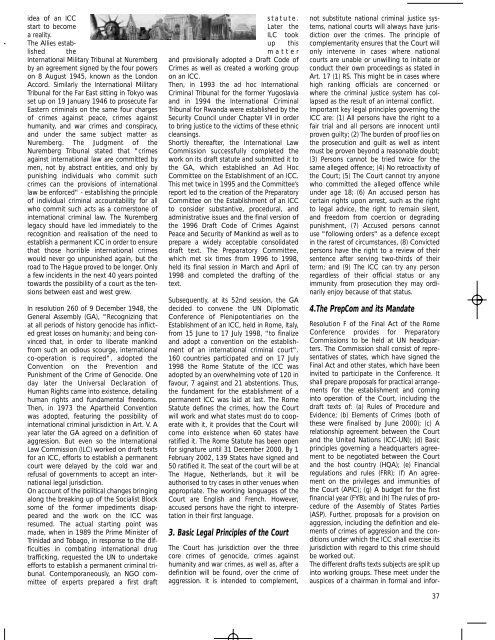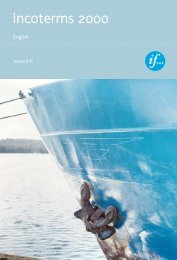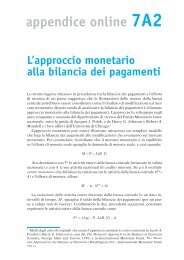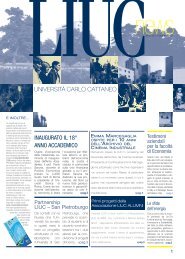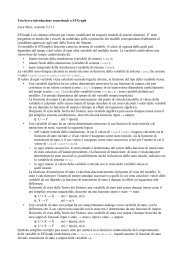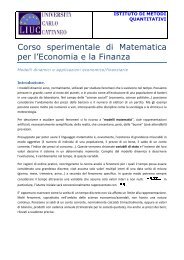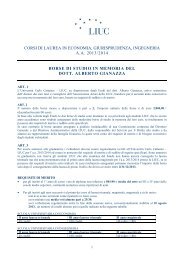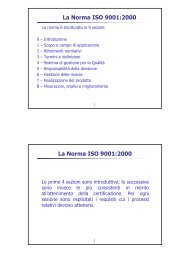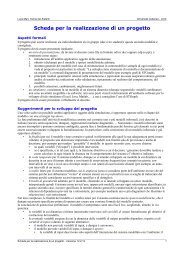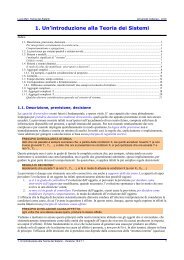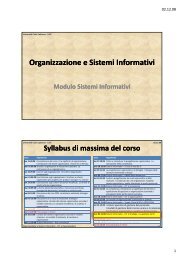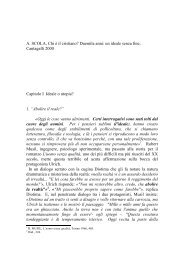The ELSA
The ELSA
The ELSA
- No tags were found...
You also want an ePaper? Increase the reach of your titles
YUMPU automatically turns print PDFs into web optimized ePapers that Google loves.
idea of an ICCstart to becomea reality.<strong>The</strong> Allies establishedtheInternational Military Tribunal at Nurembergby an agreement signed by the four powerson 8 August 1945, known as the LondonAccord. Similarly the International MilitaryTribunal for the Far East sitting in Tokyo wasset up on 19 January 1946 to prosecute FarEastern criminals on the same four chargesof crimes against peace, crimes againsthumanity, and war crimes and conspiracy,and under the same subject matter asNuremberg. <strong>The</strong> Judgment of theNuremberg Tribunal stated that "crimesagainst international law are committed bymen, not by abstract entities, and only bypunishing individuals who commit suchcrimes can the provisions of internationallaw be enforced" - establishing the principleof individual criminal accountability for allwho commit such acts as a cornerstone ofinternational criminal law. <strong>The</strong> Nuremberglegacy should have led immediately to therecognition and realisation of the need toestablish a permanent ICC in order to ensurethat those horrible international crimeswould never go unpunished again, but theroad to <strong>The</strong> Hague proved to be longer. Onlya few incidents in the next 40 years pointedtowards the possibility of a court as the tensionsbetween east and west grew.In resolution 260 of 9 December 1948, theGeneral Assembly (GA), "Recognizing thatat all periods of history genocide has inflictedgreat losses on humanity; and being convincedthat, in order to liberate mankindfrom such an odious scourge, internationalco-operation is required", adopted theConvention on the Prevention andPunishment of the Crime of Genocide. Oneday later the Universal Declaration ofHuman Rights came into existence, detailinghuman rights and fundamental freedoms.<strong>The</strong>n, in 1973 the Apartheid Conventionwas adopted, featuring the possibility ofinternational criminal jurisdiction in Art. V. Ayear later the GA agreed on a definition ofaggression. But even so the InternationalLaw Commission (ILC) worked on draft textsfor an ICC, efforts to establish a permanentcourt were delayed by the cold war andrefusal of governments to accept an internationallegal jurisdiction.On account of the political changes bringingalong the breaking up of the Socialist Blocksome of the former impediments disappearedand the work on the ICC wasresumed. <strong>The</strong> actual starting point wasmade, when in 1989 the Prime Minister ofTrinidad and Tobago, in response to the difficultiesin combating international drugtrafficking, requested the UN to undertakeefforts to establish a permanent criminal tribunal.Contemporaneously, an NGO committeeof experts prepared a first draftstatute.Later theILC tookup thismatterand provisionally adopted a Draft Code ofCrimes as well as created a working groupon an ICC.<strong>The</strong>n, in 1993 the ad hoc InternationalCriminal Tribunal for the former Yugoslaviaand in 1994 the International CriminalTribunal for Rwanda were established by theSecurity Council under Chapter VII in orderto bring justice to the victims of these ethniccleansings.Shortly thereafter, the International LawCommission successfully completed thework on its draft statute and submitted it tothe GA, which established an Ad HocCommittee on the Establishment of an ICC.This met twice in 1995 and the Committee’sreport led to the creation of the PreparatoryCommittee on the Establishment of an ICCto consider substantive, procedural, andadministrative issues and the final version ofthe 1996 Draft Code of Crimes AgainstPeace and Security of Mankind as well as toprepare a widely acceptable consolidateddraft text. <strong>The</strong> Preparatory Committee,which met six times from 1996 to 1998,held its final session in March and April of1998 and completed the drafting of thetext.Subsequently, at its 52nd session, the GAdecided to convene the UN DiplomaticConference of Plenipotentiaries on theEstablishment of an ICC, held in Rome, Italy,from 15 June to 17 July 1998, "to finalizeand adopt a convention on the establishmentof an international criminal court".160 countries participated and on 17 July1998 the Rome Statute of the ICC wasadopted by an overwhelming vote of 120 infavour, 7 against and 21 abstentions. Thus,the fundament for the establishment of apermanent ICC was laid at last. <strong>The</strong> RomeStatute defines the crimes, how the Courtwill work and what states must do to cooperatewith it, it provides that the Court willcome into existence when 60 states haveratified it. <strong>The</strong> Rome Statute has been openfor signature until 31 December 2000. By 1February 2002, 139 States have signed and50 ratified it. <strong>The</strong> seat of the court will be at<strong>The</strong> Hague, Netherlands, but it will beauthorised to try cases in other venues whenappropriate. <strong>The</strong> working languages of theCourt are English and French. However,accused persons have the right to interpretationin their first language.3. Basic Legal Principles of the Court<strong>The</strong> Court has jurisdiction over the threecore crimes of genocide, crimes againsthumanity and war crimes, as well as, after adefinition will be found, over the crime ofaggression. It is intended to complement,not substitute national criminal justice systems,national courts will always have jurisdictionover the crimes. <strong>The</strong> principle ofcomplementarity ensures that the Court willonly intervene in cases where nationalcourts are unable or unwilling to initiate orconduct their own proceedings as stated inArt. 17 (1) RS. This might be in cases wherehigh ranking officials are concerned orwhere the criminal justice system has collapsedas the result of an internal conflict.Important key legal principles governing theICC are: (1) All persons have the right to afair trial and all persons are innocent untilproven guilty; (2) <strong>The</strong> burden of proof lies onthe prosecution and guilt as well as intentmust be proven beyond a reasonable doubt;(3) Persons cannot be tried twice for thesame alleged offence; (4) No retroactivity ofthe Court; (5) <strong>The</strong> Court cannot try anyonewho committed the alleged offence whileunder age 18; (6) An accused person hascertain rights upon arrest, such as the rightto legal advice, the right to remain silent,and freedom from coercion or degradingpunishment, (7) Accused persons cannotuse "following orders" as a defence exceptin the rarest of circumstances, (8) Convictedpersons have the right to a review of theirsentence after serving two-thirds of theirterm; and (9) <strong>The</strong> ICC can try any personregardless of their official status or anyimmunity from prosecution they may ordinarilyenjoy because of that status.4.<strong>The</strong> PrepCom and its MandateResolution F of the Final Act of the RomeConference provides for PreparatoryCommissions to be held at UN headquarters.<strong>The</strong> Commission shall consist of representativesof states, which have signed theFinal Act and other states, which have beeninvited to participate in the Conference. Itshall prepare proposals for practical arrangementsfor the establishment and cominginto operation of the Court, including thedraft texts of: (a) Rules of Procedure andEvidence; (b) Elements of Crimes (both ofthese were finalised by June 2000); (c) Arelationship agreement between the Courtand the United Nations (ICC-UN); (d) Basicprinciples governing a headquarters agreementto be negotiated between the Courtand the host country (HQA); (e) Financialregulations and rules (FRR); (f) An agreementon the privileges and immunities ofthe Court (APIC); (g) A budget for the firstfinancial year (FYB); and (h) <strong>The</strong> rules of procedureof the Assembly of States Parties(ASP). Further, proposals for a provision onaggression, including the definition and elementsof crimes of aggression and the conditionsunder which the ICC shall exercise itsjurisdiction with regard to this crime shouldbe worked out.<strong>The</strong> different drafts texts subjects are split upinto working groups. <strong>The</strong>se meet under theauspices of a chairman in formal and infor-37


